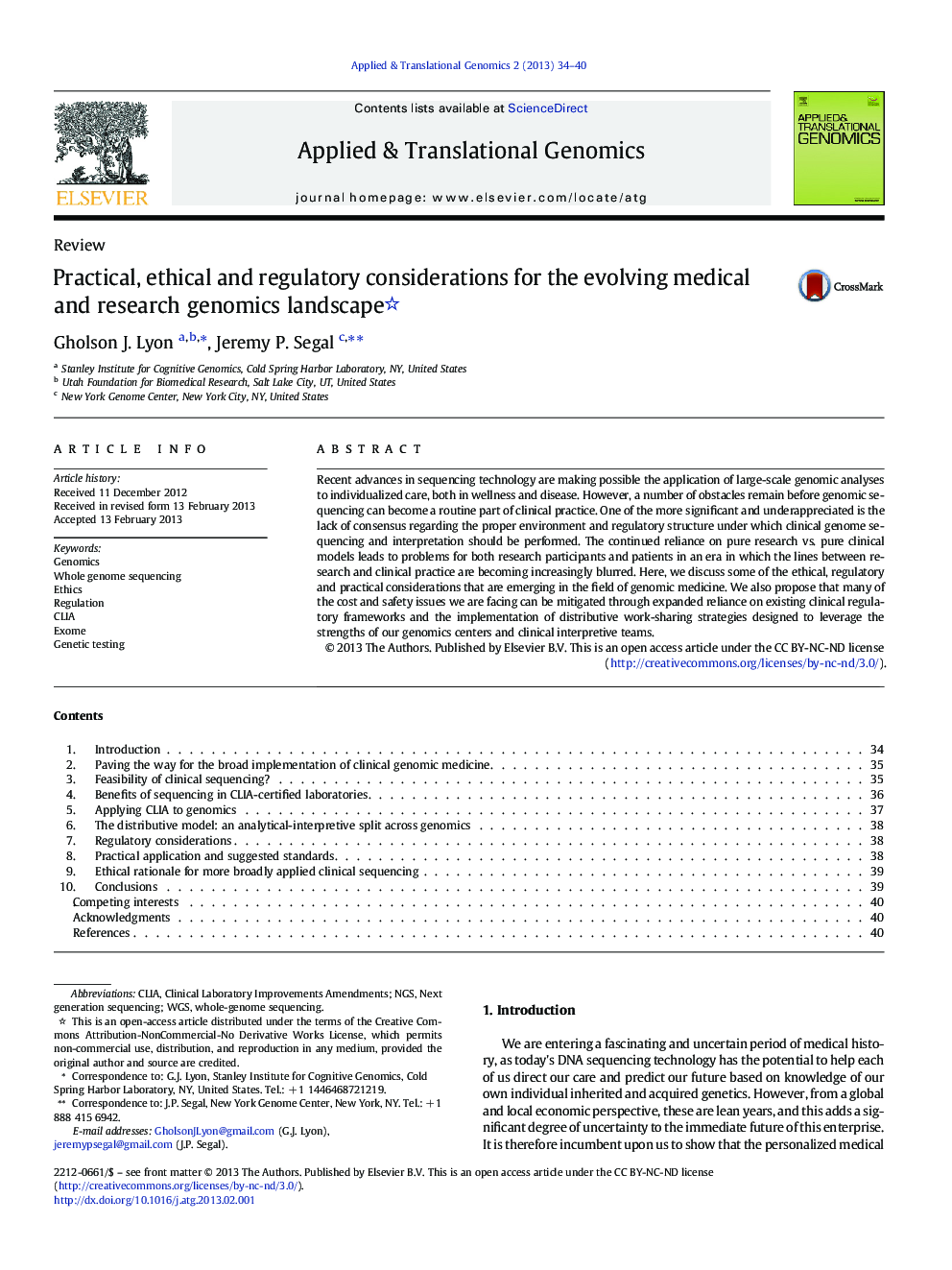| Article ID | Journal | Published Year | Pages | File Type |
|---|---|---|---|---|
| 2773025 | Applied & Translational Genomics | 2013 | 7 Pages |
Recent advances in sequencing technology are making possible the application of large-scale genomic analyses to individualized care, both in wellness and disease. However, a number of obstacles remain before genomic sequencing can become a routine part of clinical practice. One of the more significant and underappreciated is the lack of consensus regarding the proper environment and regulatory structure under which clinical genome sequencing and interpretation should be performed. The continued reliance on pure research vs. pure clinical models leads to problems for both research participants and patients in an era in which the lines between research and clinical practice are becoming increasingly blurred. Here, we discuss some of the ethical, regulatory and practical considerations that are emerging in the field of genomic medicine. We also propose that many of the cost and safety issues we are facing can be mitigated through expanded reliance on existing clinical regulatory frameworks and the implementation of distributive work-sharing strategies designed to leverage the strengths of our genomics centers and clinical interpretive teams.
► Benefits of sequencing in CLIA-certified laboratories ► Distributive model: an analytical-interpretive split across genomics ► Regulatory considerations ► Practical application and suggested standards ► Ethical rationale for more broadly applied clinical sequencing
